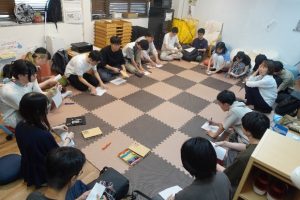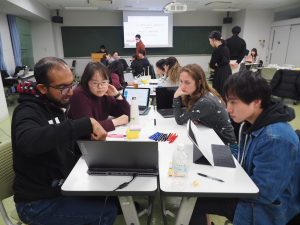The second session of Leadership Core Program of ToTAL’s course “Fundamental Group Work for Leadership” was held on May 17, 2025.
| Facilitator | Yuri Matsuzaki, Specially Appointed Associate Professor, Academy for Leadership, Institute of Science Tokyo |
| Date and Time | Saturday, May 17, 2025, 10:00–15:00 (Session #2) |
| Venue | Room S4-202, 2nd floor, South Building 4, Ookayama Campus |
Overview
Activity 1: Life Reflection & Peer Interviews Exercise (Understanding yourself)
■Overview: Using a worksheet called a lifeline chart, participants drew a graph of their motivation up to the present and then verbalized the events and values behind it.
■Purpose:
① Reflect on oneself and visualize the ups and downs of motivation in life.
② Reflect on what happened when motivation was rising or falling.
③ Articulate the root causes of motivation and underlying values.
■Content: Participants visualized the ups and downs of motivation from elementary school enrollment to the present. Within this, we listed the events that occurred during periods of sudden fluctuations in motivation, sustained high levels, or prolonged lows. Then, by identifying commonalities among the listed events, we articulated where motivation originated (who inspired it, what values underlie it, etc.). By writing those points down on paper, the experiences and values that shape one’s current self became clear, and I felt like I was reliving my past life.
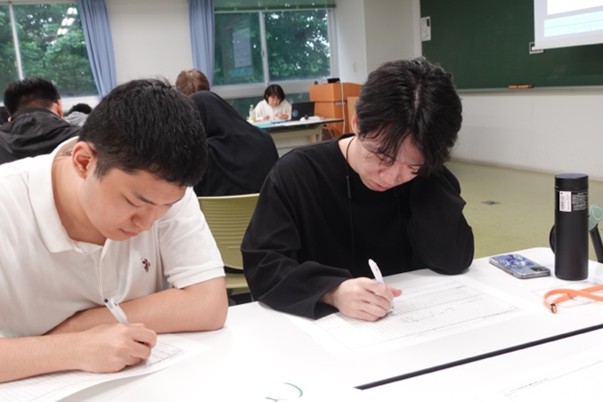
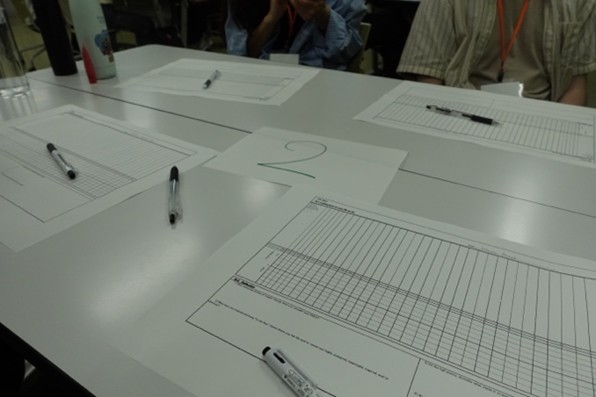
Activity 2: Mutual Interview Using a Lifeline Chart (Learning and Practicing Empathetic Listening)
■Overview: There was a short lecture on the attitude of the listener when listening to the speaker’s topic, and we learned what kind of listening is ideal. After that, in groups of 4-5 people, we conducted mutual interviews using the worksheet from Activity 1, experiencing three roles: speaker, interviewer who directly interacts with the speaker, and recorder who summarizes the speaker’s story, and practiced empathetic listening.
■Purpose:
① Learn about the stages of listening and the importance of empathetic listening and its effects.
② Practice empathetic listening through reflection on the interviewer’s and speaker’s topics.
③ Explore new values that the speaker may not be aware of through empathetic listening.
■Content: We learned about empathetic listening, which is important when listening to others, especially when gaining a deep understanding of the person themselves. When practicing empathetic listening as an interviewer, I was able to gain a deeper understanding of the speaker’s life by trying to relive their story and delve deeper into the values that emerge from their life experiences. After all the mutual interviews were completed, we conducted a group reflection, and about half of the members said they had made new discoveries through the interviews. I felt that the range of discoveries expanded not only by being interviewed by the interviewer but also by imagining myself in the interactions with other members.
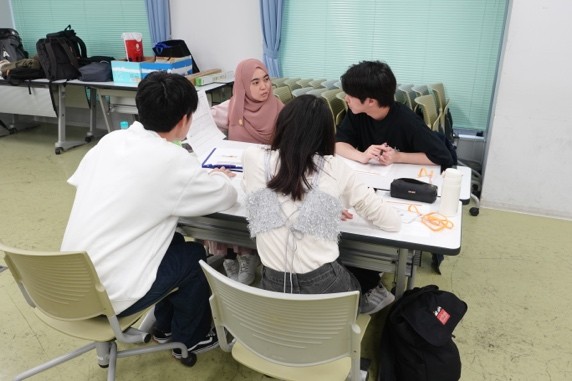
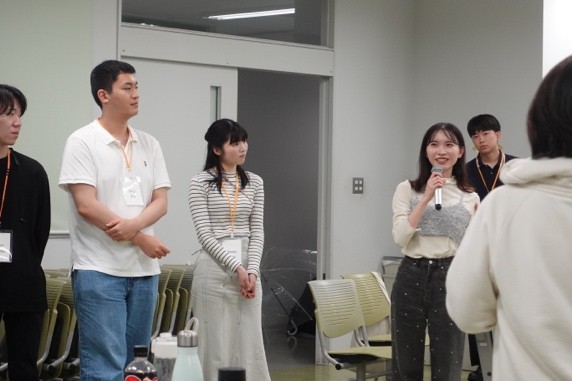
Activity 3: Exploring Values
■Overview: From a list of numerous values, participants selected the values they particularly cherish, prioritizing them while also considering their connections to Activities 1 and 2. Then, participants shared their prioritized values with their group members.
■Purpose:
① Organize the values one cherishes and the reasons behind them.
② Explore the connection between the values one cherishes and daily life.
③ Identify commonalities and differences in values among group members to better understand one another.
■Content: Among various values, participants recalled the sources of their motivation and selected five values they particularly cherish. Prioritization was done by assigning a score of 0 or 1 to two values out of the five, focusing on which one is more important, and then ranking them. When ranking two values or sharing them with members, recalling daily actions helped increase the clarity of who I am as a person. Additionally, some members gained new insights by hearing about others’ values and criteria for judgment.
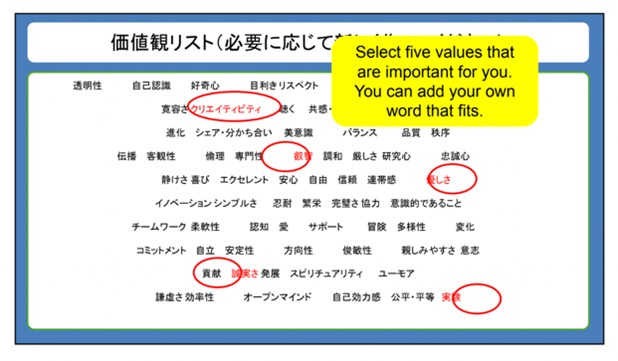
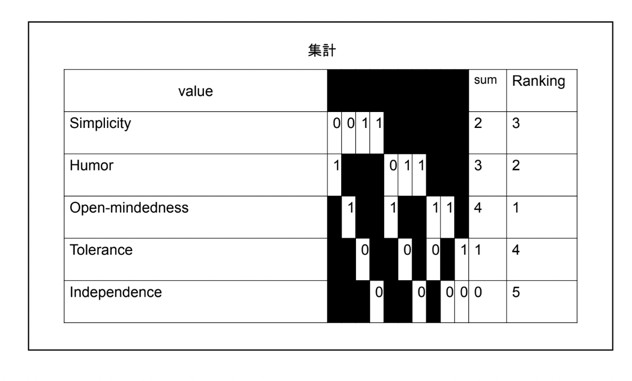
Reflections
Even during my job search, I reflected on my life to understand who I am, but this time, by deeply understanding each other’s values with the members, my own values expanded. During the interviews, expressing the content I heard in my own words and delving deeper into the “why” helped deepen mutual understanding. This attitude is very important in building a shared understanding, not only in getting to know each other as people, but also in research discussions and, ultimately, in working with others in society. I believe I learned a very useful foundation.
Additional notes
Since the theme of this session was to gain a deeper understanding of oneself and one’s peers, conversations flowed freely during lunch among members and between members and teaching assistants (TAs). Hearing about the experiences of members from different academic years and TAs, especially for first-year master’s students who had just enrolled, provided an excellent opportunity to discuss concerns, ask detailed questions about graduate school life, and build relationships. Personally, as I progress through the program, I am grateful to have been able to build new connections. Since the distance between members is relatively close in this course, I highly recommend it for those seeking mental support to help navigate graduate school life together.
Reported by:
Tasuku Watanabe, D3, School of Environment and Society, ToTAL 4th cohort student

